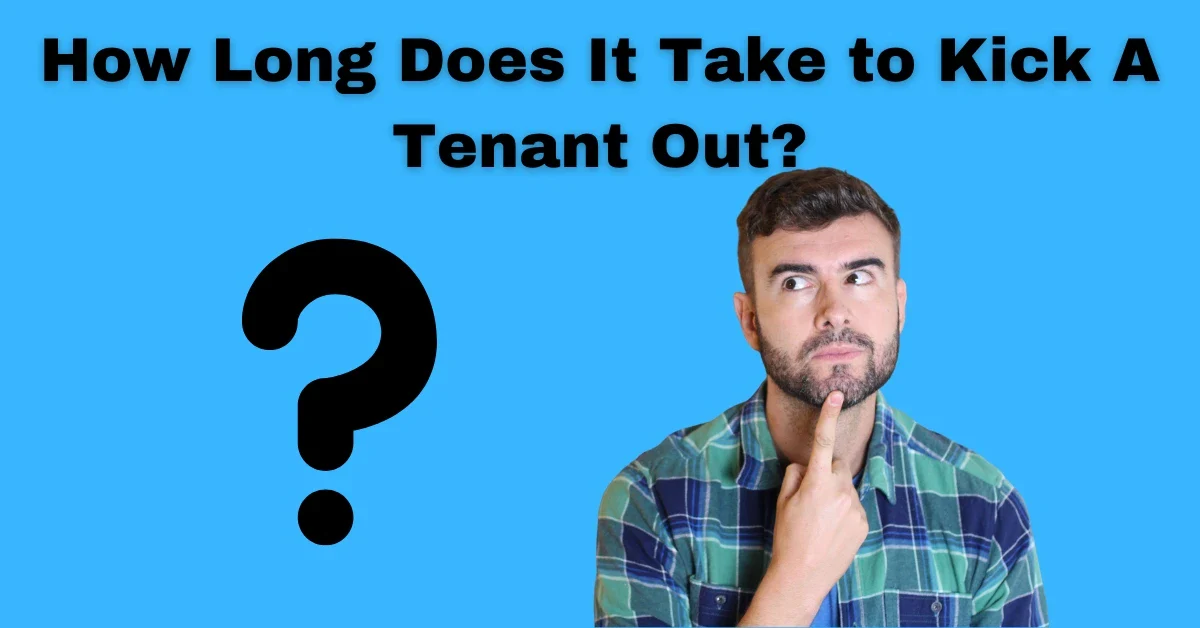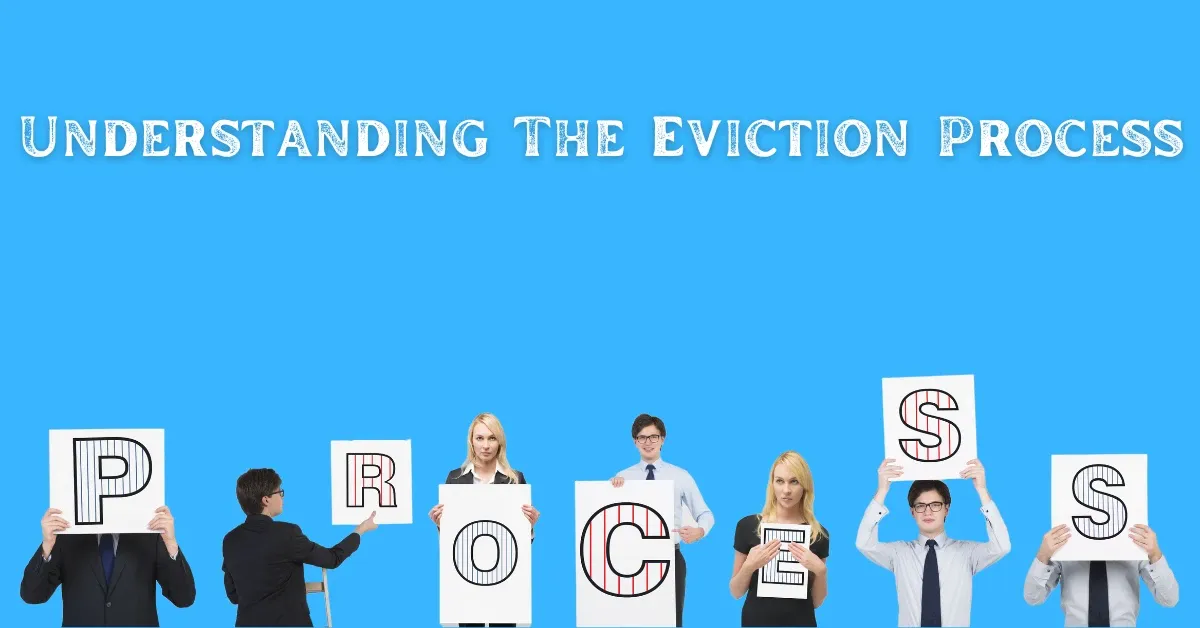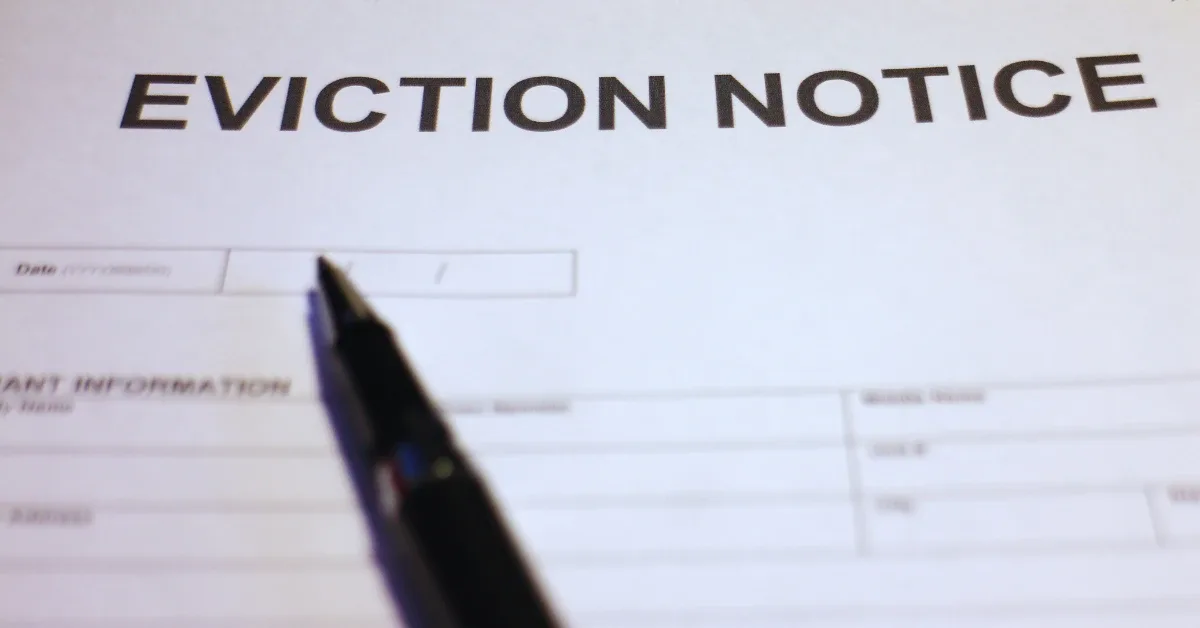It typically takes 30 to 90 days to evict a tenant, depending on the laws in your state. Eviction is a legal process that landlords use to remove tenants who violate their lease agreement.
But before you can begin the eviction process, you must know the law, and follow the eviction process in your state. Each state has its own laws regarding the eviction process, so it is essential to understand how your state handles evictions.

Understanding The Eviction Process

What Is Eviction?
Eviction is a legal process used to remove a tenant from a rental property.
It becomes necessary when a tenant violates the lease agreement by failing to pay rent or causing significant damages to the property.
Engaging in illegal activities in the rental, or endangering the safety of other tenants also make the eviction legal.
How Does The Eviction Process Work?
The eviction process involves several steps, including serving the tenant with an eviction notice and filing an eviction lawsuit in court.
It also includes attending a court hearing, obtaining a judgment of possession, and finally, getting the tenant removed from the rental property.
What Are The Legal Requirements For Landlords And Tenants During An Eviction?
There are legal requirements that landlords and tenants must follow during the eviction process.
For example, landlords must provide tenants with a written notice detailing the reason for eviction and provide reasonable notice for entry.
He should also ensure that the rental property meets all habitability standards.
On the other hand, tenants have the right to contest the eviction, respond to the eviction notice within a certain timeframe, and get a fair hearing in court.
Is There A Difference In Eviction Laws Between States And Municipalities?
Yes, there are differences in eviction laws between states and municipalities.
While most states have similar eviction procedures, some states may offer additional protections for tenants.
Additionally, some cities or counties may have their own eviction laws and timelines that landlords and tenants must follow.
It’s important to research and understand the specific eviction laws in your area before beginning the eviction process.
Factors That Affect The Time It Takes To Evict A Tenant

The Reason For Eviction
Evicting a tenant is a legal process governed by specific laws and regulations, as some reasons for eviction might not be legally sufficient.
A clear and legitimate reason must exist for a landlord to evict a tenant.
Some of the legitimate reasons for eviction include non-payment of rent, lease violation, property damage, illegal activity on the property, and expiry of the lease agreement.
Tenant Cooperation Or Resistance
A tenant who cooperates with the eviction process can make the process smoother and faster for both parties.
However, if the tenant does not cooperate, it can slow down the eviction process.
Tenant resistance may include refusing to vacate the property, failing to attend court dates, or not answering summon notices.
This could ultimately lead to a judgment against the tenant, resulting in a forced eviction.
The Court System And Filing Process
The eviction process generally involves going to court and filing appropriate legal paperwork.
The time it takes for the court to process the paperwork and schedule hearings can vary.
Once the case reaches the court, a judge may issue an eviction order, which gives the tenant a deadline to move out.
In some places, courts are backed up, which can cause significant delays.
The Involvement Of A Lawyer
Involving a lawyer in the eviction process can speed it up or slow it down, depending on the circumstances.
A lawyer with experience in eviction cases can guide the landlord on the legal requirements and ensure the paperwork is in order.
However, if the tenant has a lawyer, the case may become more complicated, leading to further delays.
Delays Due To Covid-19
The covid-19 pandemic has caused significant delays in the eviction process due to the backlog of cases.
Some jurisdictions have implemented temporary eviction bans or moratoriums, which has resulted in additional delays.
It is essential to note that the rules regarding eviction during covid-19 may have different regulations and timelines in different jurisdictions.
Overall, the time it takes to evict a tenant varies significantly depending on many factors, some of which are beyond the control of the landlord.
Landlords must ensure that they are following proper procedures and considering all factors when attempting to evict a tenant.
Frequently Asked Questions On How Long Does It Take To Kick A Tenant Out
How Long Does It Take To Start The Eviction Process?
The process can start as early as receiving a notice of lease violation.
What’s The Average Time For The Entire Eviction Process?
From start to finish, it can take between 30 to 45 days on average.
What Are The States With The Longest Eviction Process?
New York, new jersey, and California have some of the more extended eviction timelines.
What Happens If The Tenant Refuses To Leave After Eviction Notice?
If the tenant stubbornly refuses to leave, a court order can be sought to force them to move out.
Conclusion
You’ve grasped it; ejecting a tenant isn’t a walk in the park. Typically, it can take anywhere from one to three months, influenced by local laws and the specifics of the situation.
However, with proper planning and a keen understanding of tenant rights, you can navigate this process efficiently and legally.
